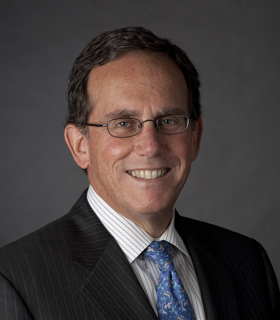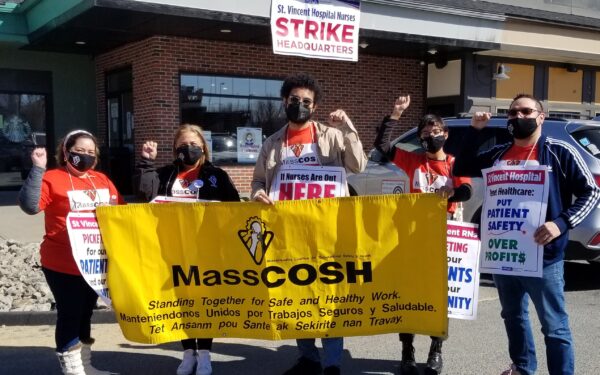“The core principle that drives bankruptcy law is that everyone is entitled to a second chance, a fresh start. Mistakes have consequences, but they do not have to define the rest of your life.” – Mark Polebaum, 2018-2019 Access to Justice Fellow

Attorney Mark Polebaum worked in bankruptcy law for the first 25 years of his legal career. After he retired in 2017, he signed up as an Access to Justice Fellow through Lawyers Clearinghouse and elected to focus his pro bono Fellowship project on student loan debt and bankruptcy—intertwined issues that often have a lasting, negative impact on people’s lives.
As a Fellow, Mark partnered with the MA Attorney General’s Office (AGO). The AGO designated him a Special Assistant Attorney General to work with the bankruptcy assistance team that Attorney General Maura Healey had established in 2017 and help coordinate the AGO’s efforts with those of the Massachusetts Bar Association (MBA) Student Loan Bankruptcy Assistance Project.
Prior to becoming a Fellow, Mark had heard of a case involving Ellen*, a 63 year old woman who had accrued over $100,000 in student loan debt after returning to law school in her 50s. After many years of trying unsuccessfully to pay off her debt—having graduated from law school into the Great Recession—Ellen filed for bankruptcy and asked the court to discharge her student loans citing undue hardship. The trial court held that although Ellen lived very frugally and did not earn sufficient income to repay her student loans, it would not be an undue hardship for her to repay the loans because she had $125,000 of equity in her principal residence.
Mark thought the ruling was profoundly unfair and a clear violation of a debtor’s homestead exemption rights under Massachusetts law. Surprisingly, there was virtually no case law that analyzed the status of exempt assets in an undue hardship context, although there were several cases from other districts that treated exempt assets as available to pay student loan debt without analysis. Obtaining a ruling that an exempt homestead is not an available asset for purposes of undue hardship analysis would be a substantial step in humanizing the fairly draconian interpretation of undue hardship.
Mark convinced Frank Morrissey, one of the attorneys responsible for managing the MBA’s Student Loan Assistance Project, to take Ellen’s case on a pro bono basis and helped the AGO draft an amicus brief on behalf of the Commonwealth. In the brief, Mark and the AGO argued that the Massachusetts legislature’s determination that a homestead is not available to pay creditors must be honored by the Bankruptcy Court as the Bankruptcy Code makes state law exemptions enforceable in bankruptcy cases. A decision by the legislature to exempt an asset from the reach of creditors is tantamount to a determination that doing without the exempt asset would be an undue hardship. Although the trial court did not order the debtor to sell her homestead, because the debtor has no other source of income to pay the student loans, the practical effect of not discharging the loans because of the existence of equity in her homestead was to make the homestead liable for the loans.
In May, Mark organized a moot hearing to help prepare attorney Morrissey for the hearing before the Bankruptcy Appellate Panel (the “BAP”). In a unanimous opinion the BAP reversed the earlier ruling against Ellen, stating definitively that an exempt homestead is exempt for all purposes in bankruptcy, including undue hardship analysis.
The BAP remanded the case to the trial court for further proceedings consistent with its holding. On remand, the trial court discharged all of Ellen’s student loans. Today, she can focus on rebuilding her life, free from the stress of unwieldy debt.
The outcome of this case also has larger implications for student loans, as Massachusetts law exempts from the claims of creditors, among other things, social security benefits and certain pension and IRA benefits. Whether these other categories of exempt assets will be protected the same as a homestead is to be determined. Mark and the AGO hope to continue this important work and seek out systemic solutions that will have an even larger impact.
*Client’s name has been changed to protect privacy.


